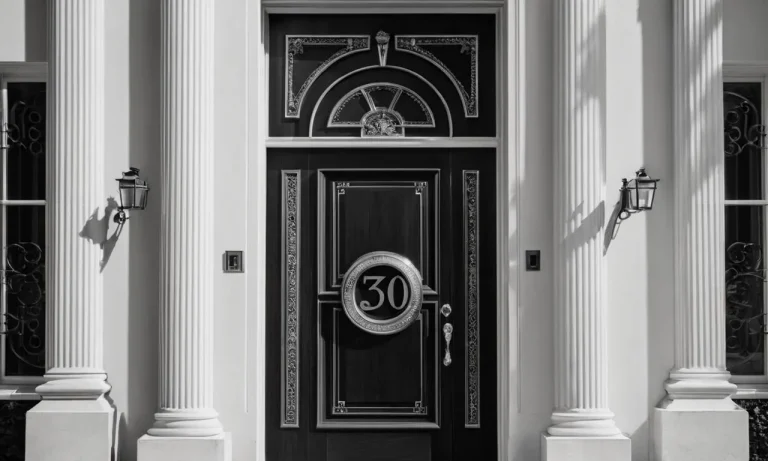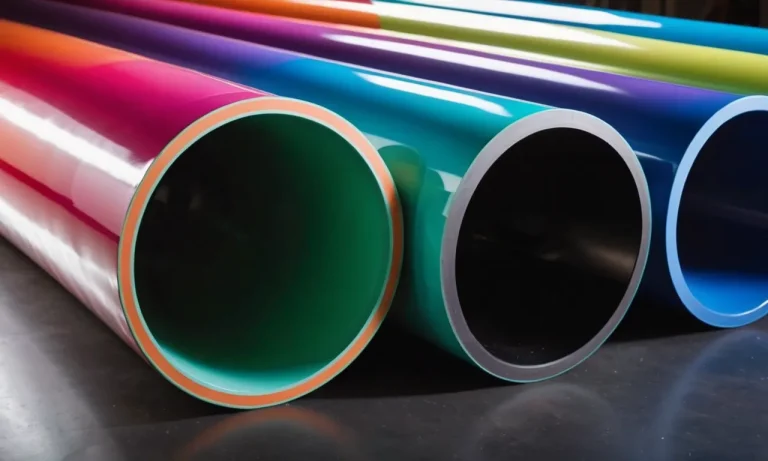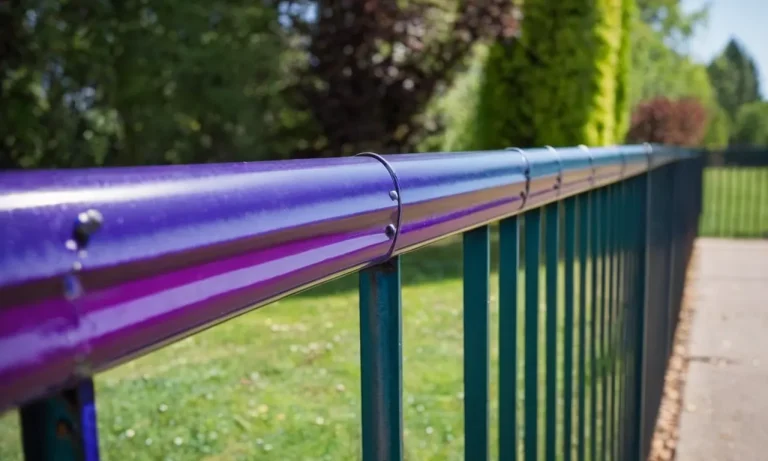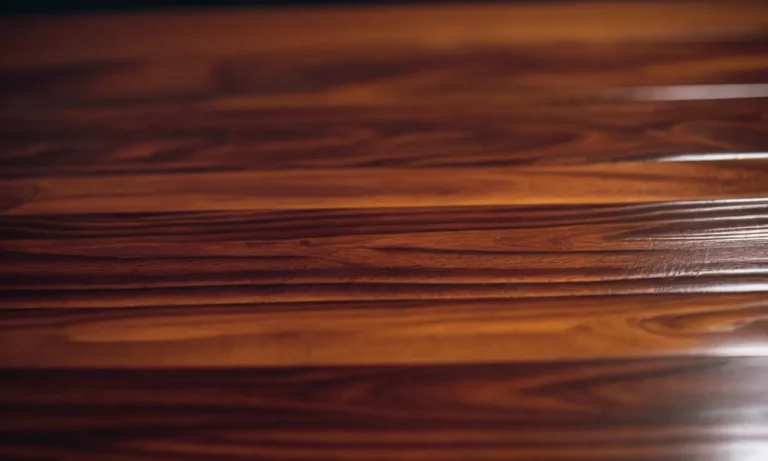Why Is My Garage Door So Loud When Opening?
If you cringe every time your garage door noisily opens or closes, you’re not alone. A loud garage door can be an annoyance to homeowners and neighbors alike.
If you’re short on time, here’s a quick answer to your question: A garage door is often loud due to lack of lubrication, worn rollers, loose hardware, or minor damage. Proper maintenance like lubrication and adjusting hardware can significantly reduce noise.
In this comprehensive guide, we’ll explore all the reasons your garage door is loud and what you can do about it. You’ll learn what causes the noise, how to troubleshoot the problem, and how to fix a loud garage door for good.
What Causes a Loud Garage Door?
There are several factors that can contribute to a loud garage door when opening. Understanding these causes can help you identify the issue and take the necessary steps to fix it. Here are some common reasons why your garage door might be making noise:
Lack of Lubrication
One of the most common causes of a loud garage door is a lack of lubrication. Over time, the moving parts of your garage door can become dry and start rubbing against each other, creating friction and noise.
Regularly lubricating the hinges, rollers, and tracks can significantly reduce the noise and help your garage door operate smoothly.
Worn or Damaged Rollers
Another possible cause of a noisy garage door is worn or damaged rollers. Rollers that are old or worn out can create excess friction and cause the door to make loud grinding or squeaking sounds when opening or closing.
Replacing these rollers with new ones can greatly reduce the noise and improve the overall performance of your garage door.
Loose Hardware
Loose hardware is another culprit behind a loud garage door. If the nuts, bolts, or screws that hold your garage door together are loose, the door may rattle and create noise when operated. Tightening all the hardware can often solve this problem and make your garage door quieter.
Minor Damage
Minor damage to the garage door itself can also cause it to be noisy. Dents, dings, or misaligned panels can affect the door’s movement and cause it to make loud banging or scraping sounds. Repairing any minor damage or realigning the panels can help reduce the noise and restore the smooth operation of your garage door.
Garage Door Opener Issues
In some cases, the source of the noise may not be the garage door itself but rather the opener. If the opener is old or improperly installed, it may create loud vibrations or rattling noises when in use.
Checking the opener for any issues or considering a replacement if necessary can help eliminate the noise and improve the overall functionality of your garage door system.
By addressing these common causes of a loud garage door, you can enjoy a quieter and more efficient operation. Remember to consult a professional if you are unsure about any repairs or if the noise persists despite your efforts.
How to Troubleshoot a Noisy Garage Door
Is your garage door making a lot of noise when you open it? Don’t worry, you’re not alone. Noisy garage doors are a common problem that many homeowners face. The good news is that there are several steps you can take to troubleshoot and fix the issue.
By following these simple tips, you can enjoy a quieter and smoother operation of your garage door.
Listen Closely
The first step in troubleshooting a noisy garage door is to listen closely to the sounds it makes. Pay attention to any grinding, squeaking, or scraping noises. This will help you identify the potential source of the problem.
One common cause of noise is worn-out rollers or hinges. These parts can become rusty or worn over time, resulting in friction and noise. Another possible culprit is loose hardware. Screws, bolts, and nuts can come loose, causing the door to rattle and make noise when it moves.
Inspect All Moving Parts
Once you have identified the source of the noise, it’s time to inspect the moving parts of your garage door. Start by examining the rollers, hinges, and tracks. Look for signs of wear and tear, rust, or damage. If you notice any issues, you may need to replace these components.
Additionally, check the springs and cables for any signs of damage or fraying. These parts are under high tension and can be dangerous to work with, so it’s best to leave any repairs or replacements to a professional garage door technician.
Test the Door Manually
If you suspect that the garage door opener is the cause of the noise, you can perform a simple test to confirm. Disconnect the opener by pulling the release cord or turning off the power. Then, manually open and close the door.
If the noise is significantly reduced or eliminated, it’s likely that the opener needs to be adjusted or repaired.
Isolate the Source
If you’re still having trouble pinpointing the source of the noise, try isolating different parts of the door. For example, you can place your hand on different sections of the door as it opens and closes to feel for vibrations or excessive noise. This can help you narrow down the problem area.
Once you have identified the source of the noise, you can take the necessary steps to fix it. Whether it’s replacing worn-out parts, tightening loose hardware, or adjusting the opener, addressing the issue promptly can help extend the lifespan of your garage door and ensure smooth and quiet operation.
Remember, if you’re unsure about any repairs or if the noise persists after troubleshooting, it’s always best to consult a professional garage door technician. They have the knowledge and experience to diagnose and fix any issues with your garage door.
How to Fix a Loud Garage Door
Is your garage door making a loud noise every time you open it? Don’t worry, there are several simple fixes that can help reduce the noise and make your garage door operate smoothly and quietly. Here are some steps you can take to fix a loud garage door:
Lubricate the Moving Parts
One of the most common reasons for a noisy garage door is lack of lubrication. Over time, the moving parts of your garage door can become dry and start to rub against each other, causing friction and noise.
To fix this, you can apply a lubricant specifically designed for garage doors to the moving parts such as hinges, rollers, and tracks. This will help reduce friction and minimize the noise.
Replace Old Rollers
Old, worn-out rollers can also contribute to a noisy garage door. If you notice that your rollers are cracked, chipped, or worn down, it’s time to replace them. New nylon or steel rollers are quieter and smoother, providing a quieter operation for your garage door.
Make sure to choose the right size and type of rollers for your specific garage door model.
Tighten Loose Screws and Hardware
If you hear rattling or shaking noises when your garage door opens or closes, it’s likely that some screws or hardware have become loose over time. Grab a wrench or screwdriver and tighten any loose screws, nuts, or bolts that you find.
This simple step can make a big difference in reducing the noise and ensuring that the door operates smoothly.
Replace Damaged Components
If your garage door is still making a lot of noise even after lubricating the moving parts and tightening the screws, it’s possible that some components may be damaged or worn out. Inspect the hinges, springs, and cables for any signs of damage or wear.
If you notice any issues, it’s best to replace the damaged components to avoid further noise and potential safety hazards.
Adjust the Garage Door Opener
Finally, if none of the above solutions work, it may be necessary to adjust the garage door opener. The opener’s settings can affect the door’s operation and noise level. Consult the owner’s manual or contact a professional for guidance on adjusting the opener’s settings to reduce the noise.
Additionally, consider installing a vibration isolation kit to further reduce any noise caused by the opener.
By following these steps and addressing the possible causes of a loud garage door, you can enjoy a quieter and smoother operation. Remember to perform regular maintenance on your garage door to prevent future noise issues and ensure its longevity.
When to Call a Garage Door Technician
While it’s normal for garage doors to make some noise when opening or closing, excessively loud or unusual noises could indicate a more serious problem. In such cases, it’s often best to call a professional garage door technician to assess the situation and make any necessary repairs.
Here are some situations where it’s advisable to seek professional help:
Significant Damage or Wear
If you notice significant damage or signs of wear on your garage door, it’s essential to have a technician inspect it. Cracks, dents, or warping can compromise the structural integrity of the door and lead to further issues over time.
A professional can determine if repairs or even a replacement is necessary to ensure the safety and functionality of your garage door.
Broken Springs
Garage door springs play a crucial role in the smooth operation of your door. If you hear a loud bang or notice that your door is suddenly unbalanced or difficult to open, it could be a sign of a broken spring.
Attempting to fix or replace garage door springs on your own can be extremely dangerous, as they are under high tension. It’s best to leave this job to trained technicians who have the knowledge and proper tools to safely handle spring repairs.
Garage Door Off Track
If your garage door comes off its track, it can cause significant damage and pose a safety risk. Trying to realign the door yourself can be challenging and may result in further damage or injury. A skilled technician can quickly assess the situation, safely realign the door, and address any underlying issues that caused it to come off track.
Opener Issues
If your garage door opener is malfunctioning, it’s often best to call a professional to diagnose and fix the problem. Faulty wiring, worn-out gears, or misaligned sensors can all contribute to opener issues.
A technician with experience in garage door openers can identify the root cause of the problem and perform the necessary repairs or recommend a replacement if needed.
Remember, attempting to fix complex garage door issues on your own can be risky and may lead to further damage or injury. Calling a garage door technician ensures that the problem is properly diagnosed and addressed, providing you with peace of mind and a fully functioning garage door.
How to Prevent a Loud Garage Door
Regular Lubrication and Maintenance
One of the most common reasons for a loud garage door is lack of lubrication. Over time, the moving parts of your garage door can become dry and start to rub against each other, causing noise. To prevent this, it is important to regularly lubricate your garage door.
You can use a silicone-based lubricant or a garage door lubricant specifically designed for this purpose. Apply the lubricant to the hinges, rollers, tracks, and springs. This will help reduce friction and noise when opening and closing your garage door.
Balance the Door
An unbalanced garage door can also contribute to excessive noise. When a garage door is not balanced properly, it puts extra strain on the opener and causes it to work harder, resulting in more noise. To check if your garage door is balanced, disconnect the opener and manually open the door halfway.
If it stays in place, it is balanced. If it starts to fall or rise, you may need to adjust the tension of the springs or call a professional for assistance.
Adjust the Opener Sensitivity
Another reason for a loud garage door could be that the opener sensitivity is set too high. The sensitivity controls how much force the opener uses to open and close the door. If it is set too high, the opener will apply excessive force, causing noise.
To adjust the sensitivity, consult your garage door opener’s manual for instructions. Make small adjustments until you find the right balance between smooth operation and minimal noise.
Install Noise-Reducing Materials
If you’ve tried lubricating, balancing, and adjusting the opener sensitivity, and your garage door is still loud, consider installing noise-reducing materials. There are various products available in the market that can help reduce the noise produced by your garage door.
For example, you can install rubber or nylon rollers that are quieter than the traditional metal ones. Additionally, you can add weatherstripping to the bottom of the door to create a tighter seal and reduce noise.
These materials can significantly reduce the noise level and make opening and closing your garage door a quieter experience.
By following these tips, you can prevent a loud garage door and enjoy a quieter and smoother operation. Remember to regularly maintain and lubricate your garage door, balance it properly, adjust the opener sensitivity, and install noise-reducing materials if needed.
With these simple steps, you can transform your noisy garage door into a peaceful one.
Conclusion
Dealing with a persistently noisy garage door can be frustrating, but in most cases the problem can be fixed with some DIY troubleshooting and maintenance. Paying attention to minor issues now can help prevent more significant problems down the road.
With proper lubrication, adjustment, and replacement of any worn parts, you can get your garage door running quietly and smoothly again. Just be cautious of attempting any major repairs yourself and know when to call in a professional garage door technician.
With the right maintenance your garage door will glide quietly for years to come.







